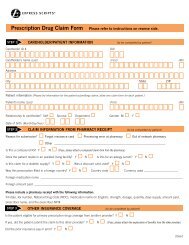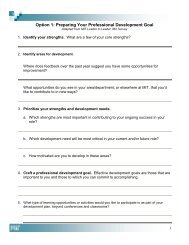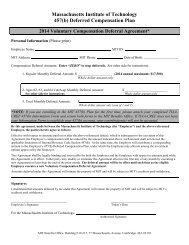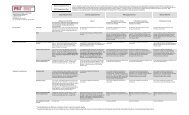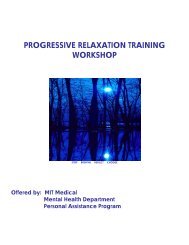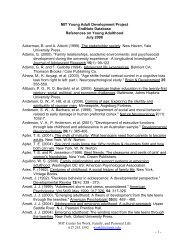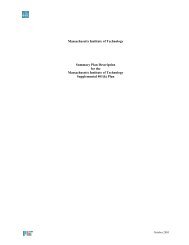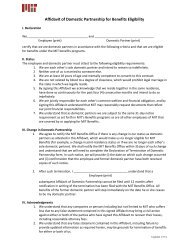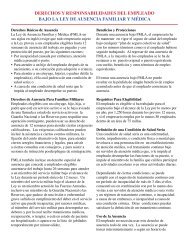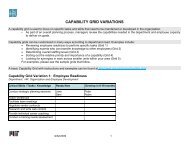Helping parents in developing countries improve adolescents' health
Helping parents in developing countries improve adolescents' health
Helping parents in developing countries improve adolescents' health
Create successful ePaper yourself
Turn your PDF publications into a flip-book with our unique Google optimized e-Paper software.
In the two project villages, girls and women choose female volunteers to take on the senga<br />
role. The groups suggest the names of permanent residents of the villages whom they trust<br />
and, “who would be able to effectively take up the sex counsell<strong>in</strong>g role.” This approach<br />
facilitates the participation of girls and women, produc<strong>in</strong>g a sense of ownership, and<br />
<strong>improve</strong>d acceptability.<br />
Sengas provide <strong>in</strong>formation on sexually-transmitted <strong>in</strong>fections (STI); referrals and followup<br />
with adolescents on whether they sought/completed treatment; identify/analyze the<br />
risks adolescents take, why they take them and how to avoid them; provide condoms;<br />
supplement knowledge about sex (to what school was offer<strong>in</strong>g) and offer additional<br />
opportunities to discuss sex.<br />
Those girls who participate <strong>in</strong> the Modern Senga <strong>in</strong>tervention have higher knowledge of<br />
HIV, report more consistent condom use and <strong>in</strong>creased use of family plann<strong>in</strong>g services. The<br />
percentage of girls report<strong>in</strong>g STI symptoms decreased, and the sexually-active girls report<br />
more open attitudes with regard to discuss<strong>in</strong>g sexual issues. Some community members<br />
report that males should also have male counsellors to assist with their <strong>in</strong>formation needs.<br />
Sengas report that there is a greater need for attention to the roles and responsibilities of<br />
men <strong>in</strong> order to effectively promote sexual <strong>health</strong>.<br />
The five roles of <strong>parents</strong> share characteristics that have important implications<br />
for programme plann<strong>in</strong>g<br />
Clearly, if programmes are to be efficient and effective, the content of their parent<strong>in</strong>g<br />
<strong>in</strong>terventions, <strong>in</strong>clud<strong>in</strong>g the relative emphasis on specific parent<strong>in</strong>g roles, will differ<br />
accord<strong>in</strong>g to the <strong>in</strong>tended outcome(s) on adolescents. For example, for positive social<br />
development as a target outcome, connection should be emphasized; for prevention<br />
of risky behaviours, behaviour control; for prevention of depression and depressive<br />
symptoms, respect for <strong>in</strong>dividuality is key.<br />
These parental roles are <strong>in</strong>terconnected <strong>in</strong> that <strong>parents</strong> perform them all, simultaneously,<br />
to one degree or another. However, given limited time, funds and parental will<strong>in</strong>gness<br />
or ability to participate <strong>in</strong> programm<strong>in</strong>g efforts, it is sensible to focus on the key roles<br />
that have been identified <strong>in</strong> the research f<strong>in</strong>d<strong>in</strong>gs as they relate to specific doma<strong>in</strong>s of<br />
adolescent <strong>health</strong> and development. Given that positive or negative parent<strong>in</strong>g behaviours<br />
20 <strong>Help<strong>in</strong>g</strong> <strong>parents</strong> <strong>in</strong> develop<strong>in</strong>g <strong>countries</strong> <strong>improve</strong> adolescents’ <strong>health</strong>



